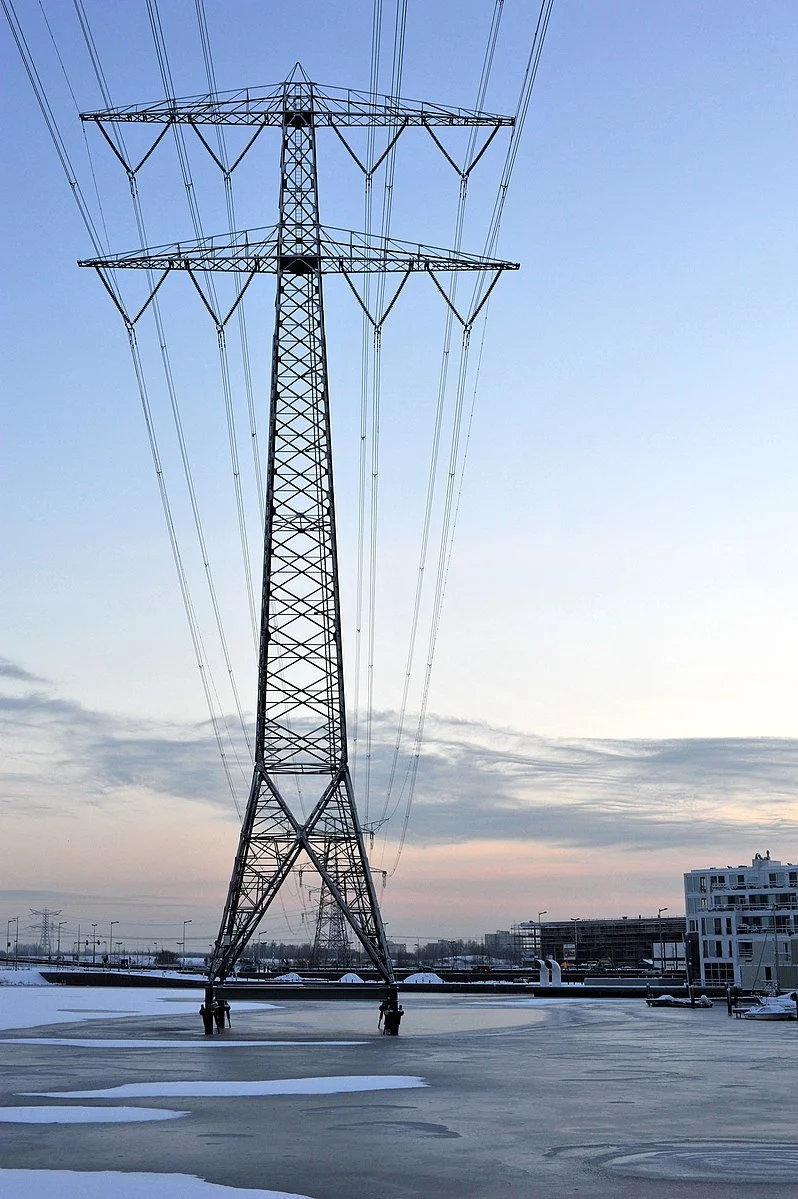Dutch Government Announces Details about Energy Price Cap and Subsidies Plan for Consumers and Firms
The overhead power line pylon at IJburg West, Amsterdam, Netherlands (Wikimedia Commons).
On October 4, the Dutch government announced details about a plan that will introduce an energy price cap and provide subsidies to Dutch citizens and businesses who are currently grappling with soaring energy prices. The Dutch government anticipates spending 23.5 billion euros to curb energy prices and release pressure on consumers. The government’s decision is a crucial step toward relieving economic consequences triggered by the Ukraine War.
Since many European countries primarily rely on Russia for energy, the disruption to the global energy market resulting from Russia’s invasion of Ukraine caused inflation to jump to 17.1 percent in September. The Dutch government unveiled the potential plan on Prinsjesdag back in September. However, specific details were not released until October 4 after the government spent several weeks finalizing the plan with energy companies.
The Dutch government announced that the price cap would come into effect in January 2023. The government says that the consumer price cap will “limit electricity to a maximum of 0.40 euros ($0.40) per kilowatt hour (kWh) while gas will be a maximum of 1.45 euros ($1.45) per cubic meter.” However, consumers are still obligated to pay the market price set by the energy companies when monthly gas consumption is over 1200 cubic meters and electricity is over 2900 kWh. The Dutch government promised that average energy consumers would receive 190 euros this November and December to alleviate increasing electricity and gas costs before the official price cap goes into effect in January.
The plan specifies that small and medium businesses that consume more energy due to the nature of their industries, such as bakeries and butchers, are eligible to receive government subsidies starting in April 2023. However, these businesses will suffer a significant hit from the soaring energy price before this government support kicks in. Economic Affairs Minister Micky Adriaansens said, “That’s why the government is now introducing extra support.” Before the actual operation of the subsidy system, the Dutch government said it would find other ways to support businesses that consume large amounts of energy.
Although the energy price cap is expected to ease the pressure that consumers and businesses are experiencing, some experts point out that skyrocketing energy prices will still pose an enormous challenge for many households this winter. Arjan Vliegenthart, Director of the National Institute for Family Finance Information (Nibud), said, “People who, sometimes out of necessity, consume more energy than average because they are ill or have a large family still pay the main price for part of their energy consumption.”
The challenges that high energy prices pose to citizens and governments alike make energy price regulation policies a priority for the Dutch government and other governments in Europe. In addition to the energy price cap and the subsidy system, promoting renewable energy is a potential measure to save Europe’s economy and living conditions. German Economy Minister Robert Habeck and Climate and Energy Policy Minister Rob Jetten point out the possible collaboration of using renewable energy to produce hydrogen between Germany and the Netherlands.

